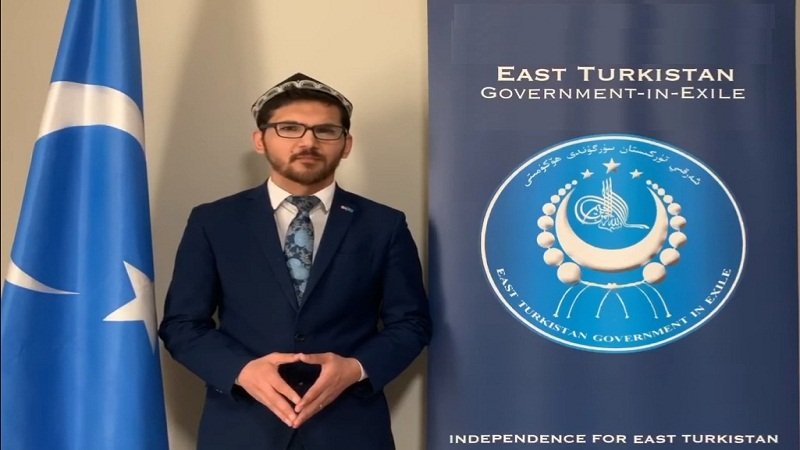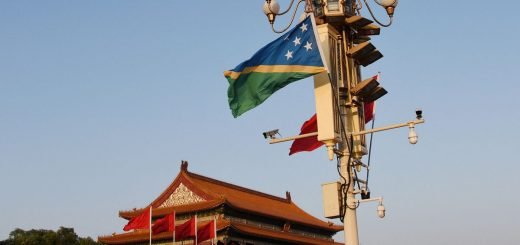An Interview with Salih Hudayar- The Prime Minister of East Turkistan Government in Exile

Since the communist takeover of mainland China under the leadership of Mao Zedong, holding territorial stretch together have been a Himalayan task for China but the authoritative nature of their political structure has enabled them to manage the affairs often with repressive tactics. The so-called Xinjiang Autonomous Region in Northwest China constitute one-sixth of Chinese landmass, originally inhabited by Turkic speaking minority ethnic group, Uyghurs got acquainted with Islam in 10th century AD and by 16th century AD, most Uyghurs identified themselves as Muslims.
Culturally distinct, ethnically alien and religiously ostracized, Uyghurs identifies themselves as more aligned to Central Asian nations. Once a part of the famous ancient Silk Road with a thriving trading post and strategically important, Kashgar city, Xinjiang is now a restive place, an epitome of Chinese state repression. At the heart of the problem lies economic, cultural and ethnic complexities. Although the Chinese constitution officially recognizes five religions, the members of the communist party of China must accept atheism to be in government. With the economic growth of China, Xinjiang also flourished attracting dominant and qualified Han Chinese from eastern provinces. This cast a shadow on Uyghurs cultural existence as over the period of time demographic transition has taken place and almost 40% of Xinjiang’s population constitutes Han Chinese.
The Kootneeti’s Consulting Editor – Amit Sinha in a conversation with Salih Hudayar– The Prime Minister of East Turkistan Government in Exile and Founder & President at East Turkistan National Awakening Movement discuss various aspects of the East Turkistan Movement, the government and the Chinese repression in the ‘so-called Xinjiang Province’

Question: What is the East Turkistan Government in Exile and National Awakening Movement?
Salih Hudayar: The East Turkistan Government in Exile (ETGE) is a democratically elected exile government that was set up by Uyghurs, Kazakhs, and other people from East Turkistan. Its predecessor was the East Turkistan National Congress (ETNC) which acted as a de-facto exile government up until the ETGE was formed on September 14, 2004, with its headquarters in Washington, DC. The East Turkistan Government in Exile represents all the people of East Turkistan including Uyghurs, Kazakhs, Kyrgyz, and others and seeks to restore East Turkistan’s independence. The East Turkistan National Awakening Movement (ETNAM) is a nonviolent international political and human rights organization that seeks to restore the independence of East Turkistan in order to safeguard the freedoms and human rights of East Turkistan’s people. We promote and protect their fundamental rights and freedoms, and we strive to uphold the national interests of the Uyghur nation, and all other peoples of East Turkistan (Uyghurs, Kazakhs, Kyrgyz, Uzbeks, Tatars, & others), both within East Turkistan and abroad.
Question: What is the difference between East Turkistan and Xinjiang? Why should one call it the former?
Salih Hudayar: East Turkistan is the true name of our country and has been documented as such since the 5th century. The term “Xinjiang” is a Chinese colonial term which literally translates as “the new territory” and was first imposed on East Turkistan following the Manchu Qing conquest of East Turkistan in 1884. Since then the people of East Turkistan have declared independence twice as the East Turkistan Republic. The first East Turkistan Republic existed from November 12, 1933, and it was overthrown by Soviet and Chinese forces on April 16, 1934. The people of East Turkistan declared independence for the second time as the East Turkistan Republic on November 12, 1944, and maintained our independence until the Chinese Communists invaded and occupied East Turkistan and overthrew our state on December 22, 1949. East Turkistan is the correct name whereas the “Xinjiang” is a colonial name imposed by China just like “Xizang” was imposed on Tibet. Nobody except for China refers to Tibet as “Xizang” and likewise, nobody should refer to East Turkistan as “Xinjiang.”

Question: What are the core values of the ET Government in exile? We noticed you quote Mahatma Gandhi
Salih Hudayar: The cover values of the East Turkistan Government in Exile are Commitment, Cooperation, Freedom, Independence, Justice, Peace, and Service. Like the honourable Mahatma Gandhi, we are committed to serving our people, restoring our people’s freedom and our country’s independence by cooperating with the likeminded individuals, organizations, and countries across the world so that we can ultimately uphold justice and peace for all.
Question: What is your vision for East Turkistan, what type of state do you think it will be if it becomes independent?
Salih Hudayar: Our goal is to restore East Turkistan’s independence as a democratic, pluralistic, secular Republic that grantees human rights and freedom for all, without restoring our independence, there is no way that we can truly safeguard the basic human rights, freedoms, and very existence of our people. We envision a stable and prosperous state that gets along with not only its neighbours but also promotes peace and mutual cooperation at both the regional and international level.

Question: Why is China committing genocide there?
Salih Hudayar: Since China occupied East Turkistan, it has been colonizing East Turkistan and waging a long campaign of genocide against our people. The reason for this is because China wants to control East Turkistan and its resources, as its geopolitically of great strategic importance for China’s development and security. East Turkistan is the cornerstone of China’s trillion-dollar Belt and Road Initiative, which is essentially China’s masterplan to achieve its “Chinese Dream” of global economic, military, and political domination. China’s biggest fear is that the people of East Turkistan, especially the Uyghurs, will push to regain East Turkistan’s independence and this the real reason behind the genocide of the Uyghurs and other Turkic people’s of East Turkistan.
Question: Tell us more about the genocide, what are the nuances of it?
Salih Hudayar: For decades, China has been engaging in colonization and genocide, though it’s only recently that international community began to actually take notice as a result of the mass internment of over 3 million Uyghurs, Kazakhs, Kyrgyz and other Turkic people in over 1400 Concentration Camps across East Turkistan. Since 1949, hundreds of thousands if not millions of East Turkistanis were massacred by Chinese occupation forces. In fact, during the first 5 years of Chinese occupation (1949-1954) over 150,000, East Turkistanis were labelled as “enemies of China” and were killed by Chinese forces. Between 1964-1993 China conducted 46 nuclear tests in East Turkistan which directly killed anywhere from 190,000 to 750,000 Uyghurs and other Turkic people while leaving millions with cancerous diseases as a result of radiation. According to the Chinese government, between 1979-2009, the Chinese government murdered 3.7 million East Turkistani babies as part of its so-called “birth control policies.”

Even today, the Chinese government is forcibly sterilizing hundreds of thousands of Uyghur and other Turkic women. Tens of thousands of Uyghur and other Turkic women have been forcibly married to Chinese men while 500,000 Uyghur and other Turkic children have been forcibly separated from their families and sent to state-run orphanages and boarding schools to be raised as “loyal Chinese citizens.” There are countless demonstrations which have resulted in massacres perpetrated by Chinese forces. The Chinese government is using part of our population as slave labour while tens of thousands every year, especially since 2017 to harvest their organs and sell them to people across the world. We may never know how many of our people were truly killed by the Chinese occupation forces in the past 70 years, but it is no doubt in the millions. Unfortunately, the international community has largely been silent and only recently they are starting to talk about the genocide but there has to be action. The world must act now and try to prevent the deaths of even 1 innocent life in East Turkistan.



















